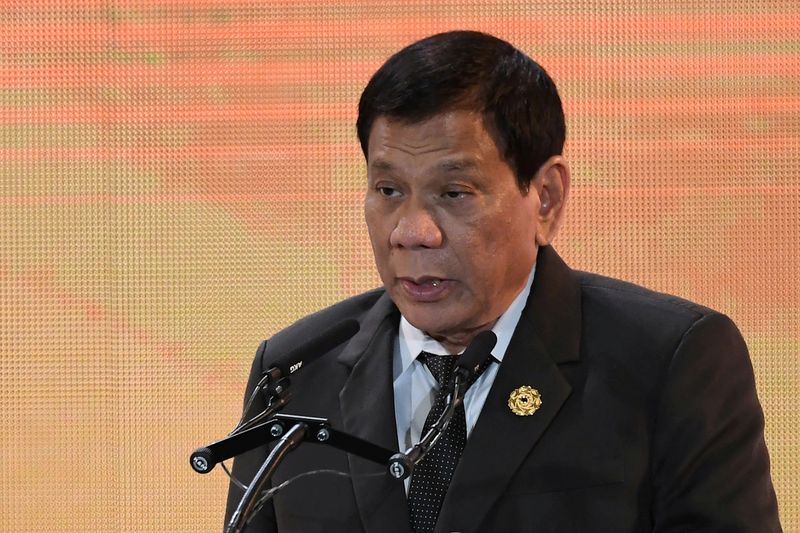MANILA (Reuters) – Philippines President Rodrigo Duterte on Friday signed into law a bill that gives indemnity to vaccine makers if their COVID-19 shots cause adverse side-effects, days before the country starts its lagging inoculation programme.
Despite having one of the highest number of coronavirus infections in Asia, the Philippines will be the last Southeast Asian nation to receive its initial set of vaccines.
In a statement, the presidential office said the law would fast-track the purchase and administration of vaccines.
It covers the creation of a 500 million pesos ($10.26 million) indemnity fund to cover compensation for potential serious adverse effects stemming from the doses’ emergency use.
COVID-19 vaccine manufacturers would be immune from lawsuits for claims arising from the administration of the shots.
The absence of an indemnification programme has delayed the delivery of 117,000 doses of the Pfizer-BioNTech vaccine, donated through the COVAX facility. The government had planned to use those doses to kick off a vaccination drive in mid-February.
The Philippines will take delivery of 600,000 doses of Sinovac Biotech’s vaccines, donated by China, on Sunday, allowing the Southeast Asian country to start inoculating healthcare workers and soldiers.
The firebrand Philippine leader last week asked Congress to hasten the vaccination and indemnification bill.
The Philippines is negotiating supply agreements with seven manufacturers for 148 million doses of COVID-19 vaccines, so it can inoculate 70 million adults, or two-thirds of its more than
108 million population.
After a record 9.5% economic slump in 2020, the Philippines is eager to start its inoculation programme to revive business and consumer confidence, and restore millions of lost jobs.
($1 = 48.72 Philippine pesos)
(Reporting by Neil Jerome Morales. Editing by Mark Potter)























